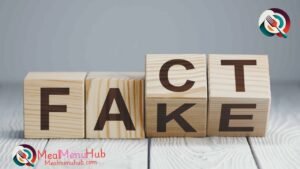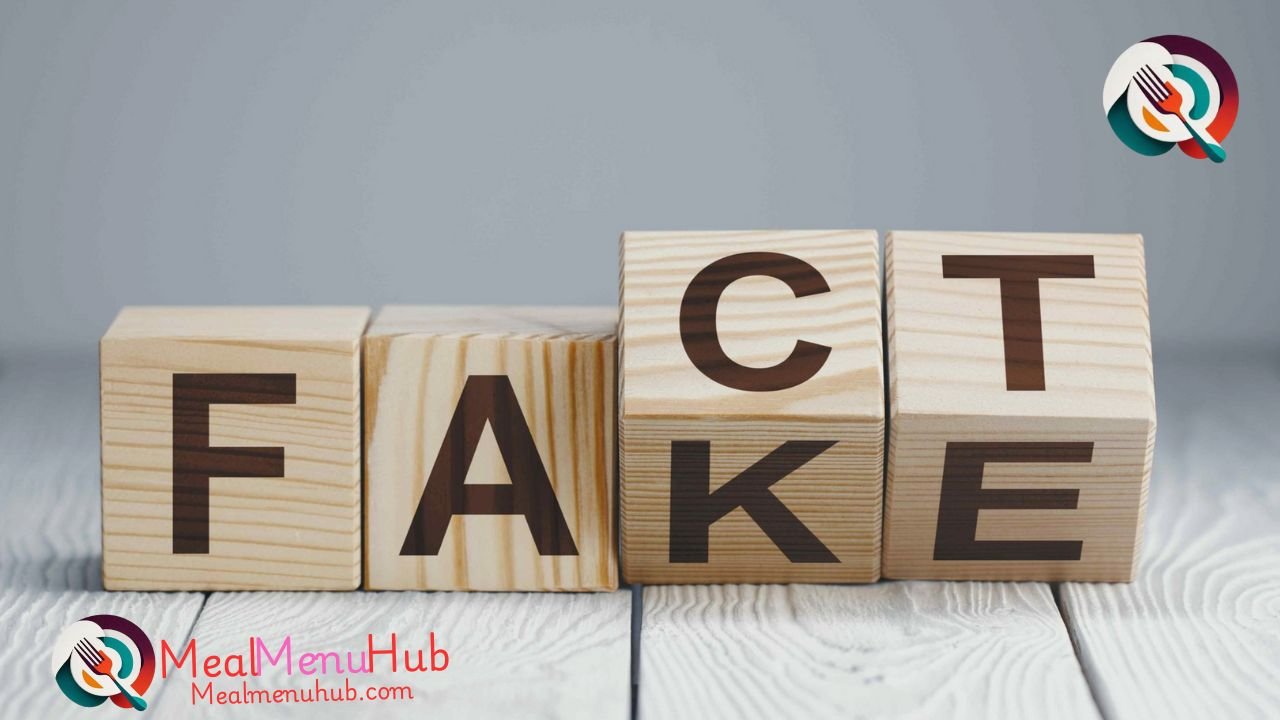Nutrition Myths Debunked: Separating Fact from Fiction
Nutrition Myths Debunked: Separating Fact from Fiction Nutrition is often surrounded by conflicting advice, especially with so much information available at our fingertips. On social media, in magazines, and even from well-meaning friends, we’re constantly exposed to nutrition myths that can leave us confused about what’s healthy and what’s not. Whether it’s the idea that carbs will make you gain weight or the belief that gluten-free diets are better for everyone, these myths can impact how we approach our health. The truth is, a lot of what we’ve been told about food is misleading, and it’s time to set the record straight.

Myth #1: Carbs Are Bad for You
One of the most common misconceptions is that carbohydrates are the enemy of weight loss and health. Carbs often get a bad rap in the world of dieting, but the truth is, they are essential for providing energy. Your body relies on carbs for fuel, especially for your brain and muscles. Not all carbs are equal, though. Simple carbohydrates, like sugar, can spike blood sugar levels and should be eaten in moderation. Complex carbs, found in whole grains, legumes, and vegetables, are much healthier options as they are packed with fiber and nutrients. So, don’t be afraid to include carbs in your diet; just choose the right ones.Nutrition Myths Debunked: Separating Fact from Fiction
Myth #2: Eating Fat Makes You Fat
Fat has long been vilified as the culprit behind weight gain, but this is an oversimplified view. While it’s true that fat is calorie-dense, healthy fats are actually beneficial to our bodies. Fats are essential for hormone production, brain function, and even the absorption of vitamins A, D, E, and K. Unsaturated fats, found in foods like olive oil, nuts, and avocados, are particularly heart-healthy. On the other hand, saturated fats, found in processed meats and full-fat dairy, should be limited. Eating fat doesn’t automatically make you fat—it’s the overall balance of your diet that matters.
Myth #3: Protein Supplements Are Necessary for Building Muscle
Many people believe that in order to build muscle, they need to load up on protein shakes and supplements. The truth is, most people can get all the protein they need from whole foods. Protein plays a key role in muscle repair and growth, but unless you are a bodybuilder or an elite athlete, you don’t need massive amounts. Good sources of protein include chicken, fish, beans, eggs, and tofu. Supplements can be helpful for those with specific dietary restrictions or athletes pushing their limits, but for most of us, whole foods are more than enough.Nutrition Myths Debunked: Separating Fact from Fiction
Myth #4: Detox Diets Cleanse Your Body
Many detox diets promise to cleanse your body of toxins, but your liver and kidneys are already doing a fantastic job at detoxifying you naturally. These organs work around the clock to filter out waste and harmful substances. Detox diets, often high in juice cleanses or restrictive eating, are usually unnecessary and can even be harmful. Instead of falling for the detox craze, focus on maintaining a healthy, balanced diet rich in whole foods, water, and fiber to support your body’s natural detoxification processes.Nutrition Myths Debunked: Separating Fact from Fiction
Myth #5: You Should Avoid All Sugar
Sugar often gets a bad reputation, especially with the rise of low-carb diets. While it’s true that excess sugar—especially refined sugars—can contribute to weight gain and increase the risk of diseases like diabetes, not all sugar is bad. Naturally occurring sugars, such as those found in fruit, are packed with vitamins, fiber, and antioxidants. The key is to limit added sugars, which are often found in processed foods and sugary drinks. Moderation is key—so enjoy a piece of fruit rather than completely cutting sugar out of your diet.Nutrition Myths Debunked: Separating Fact from Fiction
Myth #6: Gluten-Free is Healthier for Everyone
Gluten-free diets have become very popular, but they are not necessarily healthier for everyone. Gluten is a protein found in wheat, barley, and rye, and for people with celiac disease or gluten sensitivity, avoiding gluten is crucial. However, for those without these conditions, going gluten-free may not offer any health benefits. In fact, many gluten-free processed foods can be just as unhealthy as their gluten-containing counterparts. Whole grains like quinoa, brown rice, and oats can offer similar health benefits without the need to eliminate gluten.Nutrition Myths Debunked: Separating Fact from Fiction

Myth #7: You Should Avoid Red Meat at All Costs
While there’s been a lot of talk about reducing red meat consumption for health reasons, cutting it out completely might not be necessary for everyone. Red meat is a rich source of high-quality protein, iron, zinc, and B vitamins, which are essential for your body. The key is moderation—choosing lean cuts and balancing your diet with plant-based proteins, vegetables, and healthy fats. If you enjoy red meat, aim for quality and consider eating it a few times a week rather than daily.Nutrition Myths Debunked: Separating Fact from Fiction
Myth #8: Skipping Meals Will Help You Lose Weight
You’ve probably heard that skipping meals is a surefire way to shed pounds. However, this is a myth. Skipping meals can actually slow down your metabolism and lead to overeating later. Your body needs a consistent supply of energy to function optimally, and skipping meals can interfere with that. Instead of skipping meals, focus on eating smaller, balanced meals throughout the day to maintain energy levels and avoid cravings.
Myth #9: Eating Late at Night Causes Weight Gain
The idea that eating late at night will automatically lead to weight gain is another common misconception. Weight gain is determined by the number of calories you consume versus the number of calories you burn throughout the day—not the time you eat. That said, late-night eating can sometimes be linked to emotional eating or poor food choices. If you’re hungry before bed, choose a light, nutritious snack like Greek yogurt or a handful of almonds to satisfy your hunger without derailing your health goals.Nutrition Myths Debunked: Separating Fact from Fiction
Myth #10: You Can “Spot Reduce” Fat by Targeting Specific Areas
Many people believe that doing a certain exercise (like crunches) will help them lose fat in a specific area of the body. Unfortunately, this is a myth. Spot reduction doesn’t work. When you lose fat, your body burns it from all over, not just one targeted area. A combination of full-body strength training, cardio, and a healthy diet is the most effective way to reduce overall body fat.
Myth #11: All Processed Foods Are Unhealthy
While highly processed foods (like sugary snacks and fast food) are best avoided, not all processed foods are unhealthy. In fact, some processed foods can be quite nutritious, such as frozen vegetables, canned beans, and whole grain bread. The key is to differentiate between highly processed, nutrient-poor foods and minimally processed foods that still retain most of their original nutrients. Always check labels for added sugars, sodium, and unhealthy fats.
Myth #12: Eating Eggs Raises Cholesterol Levels
For years, eggs were blamed for high cholesterol and heart disease. However, recent research has shown that dietary cholesterol (like the kind found in eggs) doesn’t have a significant impact on blood cholesterol levels for most people. Eggs are an excellent source of protein, vitamins, and minerals. In fact, they can help improve heart health by raising HDL (good) cholesterol levels. Eating eggs in moderation as part of a balanced diet is perfectly fine for most people.
Myth #13: More Protein Means More Muscle
It’s a common belief that the more protein you consume, the more muscle you’ll gain. However, protein alone won’t build muscle. Muscle growth also requires consistent strength training, recovery, and overall calorie intake. Consuming too much protein can put unnecessary strain on your kidneys and may be stored as fat. Stick to the recommended protein intake for your activity level, and focus on a balanced diet that supports all aspects of muscle growth, including carbs and fats.
Conclusion
Nutrition myths are everywhere, but the truth is that a healthy diet is not about quick fixes or drastic restrictions. It’s about balance, variety, and moderation. By debunking these common nutrition myths, we hope you feel more empowered to make informed decisions about your diet. Always remember that nutrition is individual—what works for one person might not work for another. Keep learning, stay curious, and most importantly, enjoy the journey to better health!
FAQs
- Are carbs bad for weight loss?
- No, carbs are not inherently bad. It’s important to focus on whole, complex carbs like fruits, vegetables, and whole grains. They provide essential nutrients and fiber that support overall health.
- Do I need to cut out fat to lose weight?
- No, healthy fats are important for your body. Include sources like avocado, nuts, and olive oil in your diet for better overall health.
- Should I avoid gluten if I don’t have celiac disease?
- Not necessarily. Gluten is only harmful for those with celiac disease or gluten sensitivity. For most people, whole grains that contain gluten can be part of a healthy diet.
- Is it better to skip meals to lose weight?
- Skipping meals is not recommended for weight loss. It can slow down metabolism and lead to overeating later. It’s better to have regular, balanced meals.
- Can I lose fat from a specific area of my body?
- Spot reduction is a myth. Fat loss happens uniformly throughout the body, not just from specific areas. Focus on a combination of full-body exercises and a balanced diet for overall fat loss.
- Contact Us
